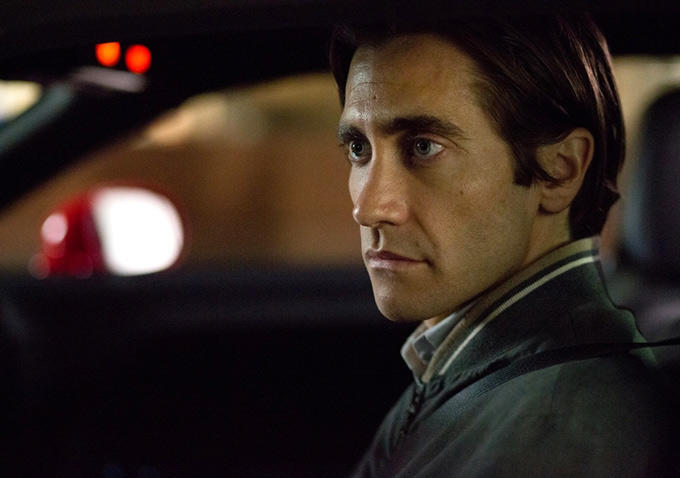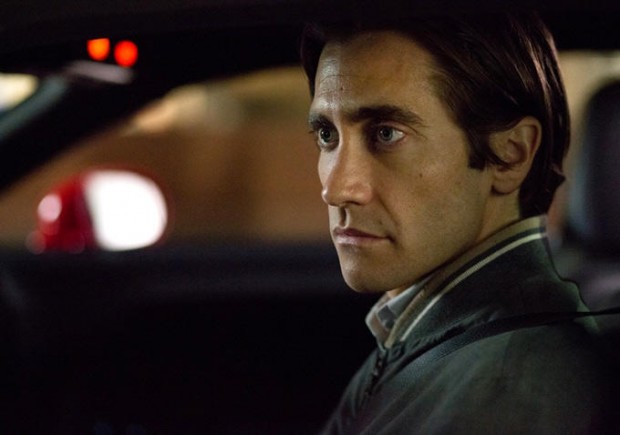
While we discuss a breadth of films each year, few things give us more pleasure than the arrival of bold, new voices. It’s why we venture to festivals and pore over a variety of different features bringing to light emerging talent. This year was an especially notable time for new directors making their stamp, and we’re highlighting the fifteen 2014 debuts that most impressed us.
This shouldn’t discount the breakthrough directors behind such films as Blue Ruin, Starred Up, Frank, Locke, Whiplash, and more, but considering that they all have at least two features under their belts, we’re strictly focusing on first-timers here. Below, once can check out a list spanning a variety different genres and distribution, from barely a theatrical release to a wide bow, and take note over the coming years as these helmers (hopefully) ascend.
A Girl Walks Home Alone at Night (Ana Lily Amirpour)
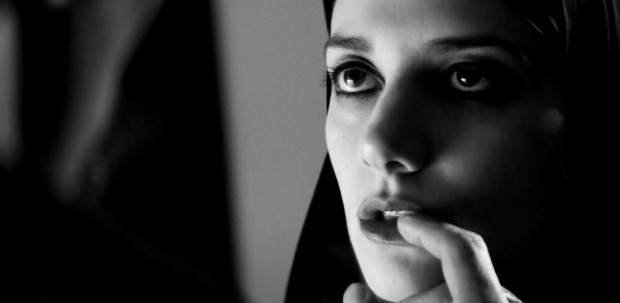
Exuding a sly sense of style and cool, the Iranian vampire film A Girl Walks Home Alone at Night is the striking debut of writer-director Ana Lily Amirpour. From the outset, with one of our main characters, Arash (Arash Marandi), all but calling himself James Dean, I was enraptured. A hipster mentality permeates the fictional Bad City setting, where bodies are simply dumped into a ravine full of other bodies and there’s the mysterious presence of a skateboarding, vinyl-loving female vampire that isn’t afraid to feed. While the film takes its time to fully unwind, I was not yet ready to leave this world when the credits rolled. Hopefully we won’t have to wait long to enter Amirpour’s universe once again. – Bill G.
The Babadook (Jennifer Kent)
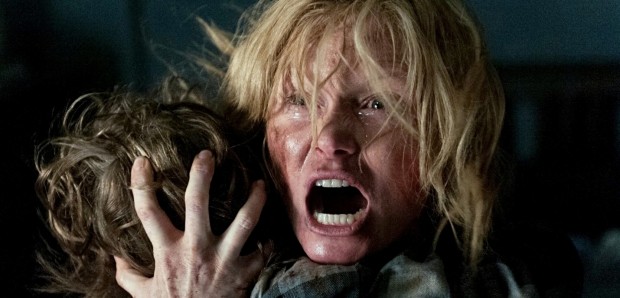
Kids and the irrational ideas their young minds conjure are always fertile ground for the horror genre, but director Jennifer Kent goes one step further in The Babadook and makes superstitious, delusional fear a family affair. Very few films can walk the tightrope between supernatural dark fantasy and heart-breaking realism, but The Babadook excels when it focuses on the relationship between a beleaguered single mother (Essie Davis) and her troubled young son (Noah Wiseman), who find a bogeyman lurking in their home. Both Davis and Wiseman give bold and entirely fearless performances that occasionally push into material so harrowing that the parent inside me was constantly cringing and on the edge of his seat. Even when it refuses to relent in the normal fashion, Kent’s debut plays for far more than shock value. She understands like few do that terror is most keenly felt when placed in close proximity to love. – Nathan B.
The Better Angels (A.J. Edwards)
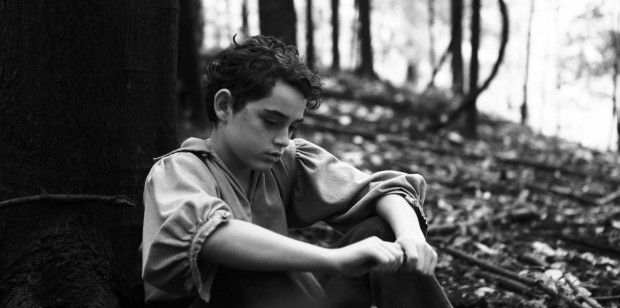
Some directors emerge onto the scene with little prior experience in the industry; that’s certainly not the case for A.J. Edwards. He’d cut his teeth in Terrence Malick’s editing rooms, and the reticent director’s influence is clearly felt in every frame of Edwards’ debut, which tells the story of the early life of Abraham Lincoln. The bookends and a few references are just about the only thing indicating the future importance of our lead, and The Better Angels is determined to make this a more universal coming-of-age story. It’s constructed with the cinema-as-memory approach that Malick has perfected in his later films. While so many others attempt to replicate the style, Edwards is the first filmmaker to effectively summon this technique and make it his own. – Jordan R.
Coherence (James Ward Byrkit)
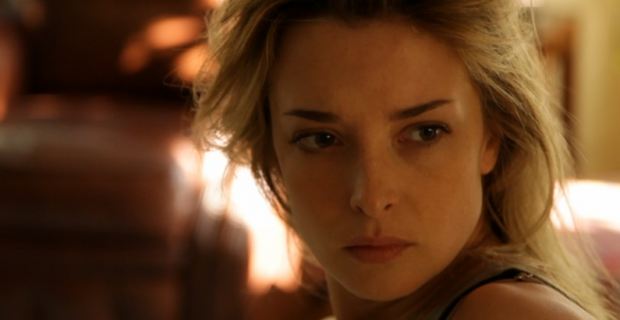
Employing a shoe-string budget over the course of a five-night shoot, the largely improvised Coherence could have easily fallen into the pit of well-meaning, easily forgotten independent dramas that struggle to acquire distribution. However, writer-director James Ward Byrkit had enough confidence in his intriguing sci-fi tale — one that follows a dinner party interrupted by the bending of reality — that he forged ahead with little resource and ended up crafting the year’s genre entry you’ll eventually be upset you missed. Those who did get on its wave-length witnessed a character-focused puzzle that, like the best in the genre, will have you questioning what you’d do in the same situation. – Jordan R.
Dear White People (Justin Simien)
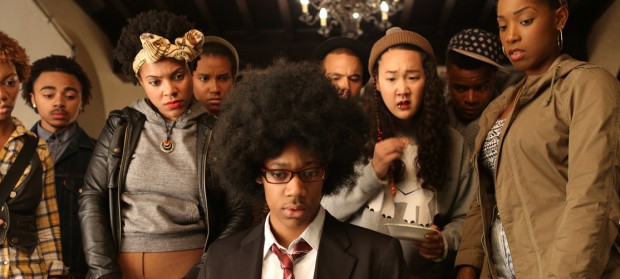
One great aspect of the Sundance Film Festival is the occasional discovery of potential new and important voices in American cinema. Dear White People, the debut feature film from writer-director Justin Simien, heralded just that this year, like a few others on this list. Set in a fictitious Ivy League university, it skewers the preconceptions of race in the modern era and how both sides of the coin can negatively reinforce stereotypes. Its main strength lies in razor-sharp dialogue brimming with the sort of quick-fire humor that would make Kevin Smith smile. Simien is a natural at creating flowing conversations that punch with intelligence, wit, and entertainment. – Raffi A.
Hide Your Smiling Faces (Daniel Patrick Carbone)
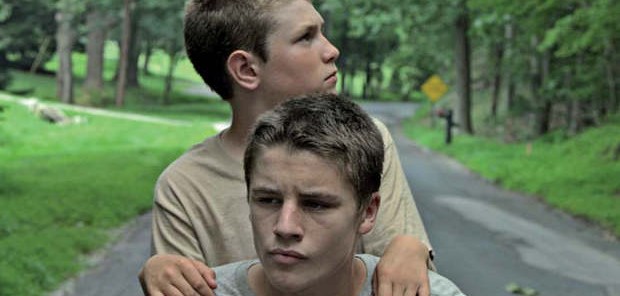
Helmer Daniel Patrick Carbone combines gorgeous locations and subtle performances to depict the emotional struggle of two young brothers dealing with a tragic death against the backdrop of rural New Jersey. In his debut feature, Carbone demonstrates an impressive style that exalts the attributes of low-budget indie cinema — an isolated setting, naturalistic dialogue, deliberate pacing — to produce a truly affecting coming-of-age portrait of grief and vulnerability. – Amanda W.
God Help the Girl (Stuart Murdoch)
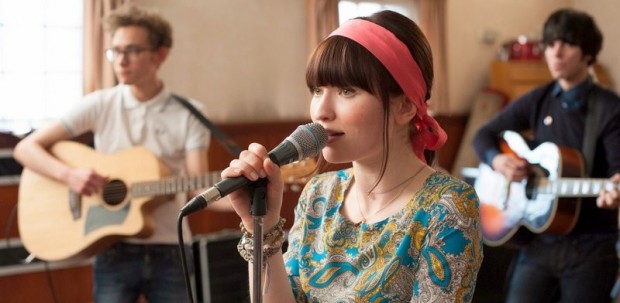
It’s no surprise that Stuart Murdoch’s first film, God Help the Girl, is whimsical and exuberant — much like his long-standing Glasgow pop act, Belle & Sebastian. Filmmaking may be new to Murdoch, but his debut — which displays how songwriting and musicianship becomes a cathartic act for the troubled girl known as Eve (Emily Browning) — is filled with elements he knows: characters sing and dance across the frame, the soundtrack is stuffed with original songs, and there are nods to music’s greatest acts throughout. The fear is that a brightly saturated first film (and a musical no less) will fall apart during its runtime, but Murdoch’s ace in the hole is his lead Emily Browning, who has faded into the noise of previous films like Sucker Punch and Pompeii but is infinitely compelling here. When God Help the Girl feels lost, her slightest glance or smile can save a sequence. In addition, Murdoch’s film channels familiar tropes from Jacques Demy’s work, along with rarer titles like Who Are You, Polly Maggoo? – Zade C.
It Felt Like Love (Eliza Hittman)
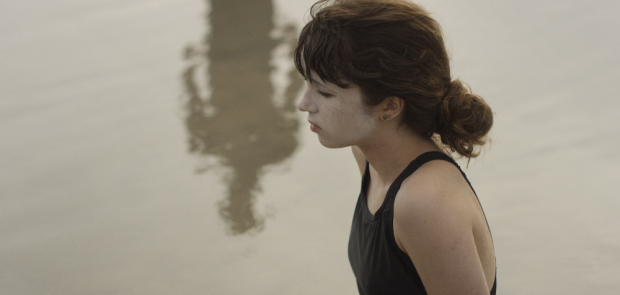
Proof that the coming-of-age story still has a place in film, despite its countless incarnations, It Felt Like Love is a tenderly observed debut from Eliza Hittman. Venturing into areas of Brooklyn not often captured this authentically, we follow Lila (Gina Piersanti), a teenager who awkwardly (and, therefore, relatably), traverses her burgeoning sexuality. It’s a textured, warm work from Hittman, and the great news is that she’s already developing her follow-up, the “anti-Juno” story of “a young pregnant woman who comes to New York.” – Jordan R.
Manakamana (Stephanie Spray, Pacho Velez)
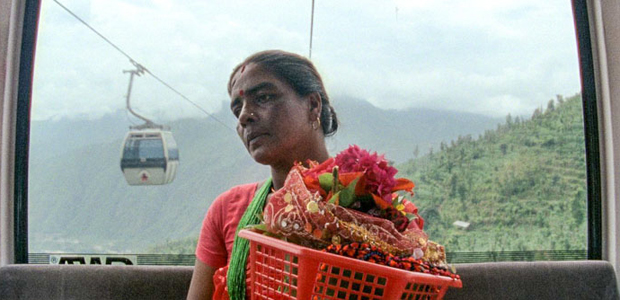
The latest work from the Harvard Sensory Ethnography Lab is also one of the most powerful, transformative experiences one is bound to experience this year. Taking a different approach than Sweetgrass and Leviathan, Manakamana places us as a passenger on twelve separate trips to and from the titular sacred temple in Nepal. While some may consider it an endurance test, I found it to be a warm, vulnerable exploration of humanity, stripping down barriers that even the vast majority of documentaries can’t help but construct. – Jordan R.
Nightcrawler (Dan Gilroy)
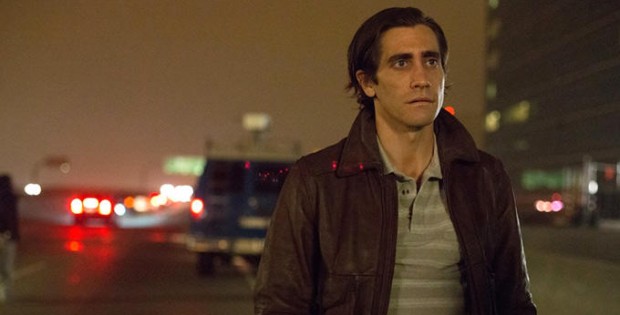
Nightcrawler balances satiric moments, thrilling set-pieces, and its sociopathic characters with a degree of confidence unusual for a directorial debut. Dan Gilroy’s study of Lou Bloom (Gyllenhaal) and his descent into the debauched job of Los Angeles crime reporter connects in the film’s most unsettling and trickiest moments. A date sequence where Lou coerces his superior at the news station into sex and greater autonomy may be unsettling in the script (also written by Gilroy), but causes even greater discomfort when committed to the screen by its novice director. In Nightcrawler, Gilroy is granted an abundance of resources. His terrific ensemble — featuring Rene Russo, Bill Paxton, and newcomer Riz Ahmed — are led by a gaunt Gyllenhaal in arguably his best performance to date. He also has Paul Thomas Anderson’s frequent cinematographer Robert Elswit framing the ghoulish Los Angels streets as he envisioned in his script. Gilroy’s greatest success as a first-timer is to weave these elements into a cohesive piece that strives to land amongst cinema’s most unsettling portraits of the night and the media. – Zade C.
Obvious Child (Gillian Robespierre)
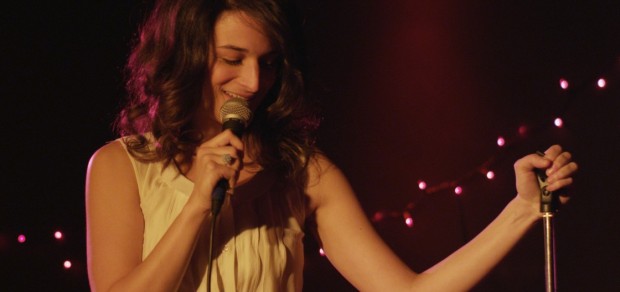
Gillian Robespierre’s Obvious Child is a darkly humorous work that I fell for so strongly that I returned to theaters for a second watch. I was rewarded with discovering even more humor buried under the immediate laughs I’d been too engaged with the first time. While taboos are breached and focused on, many people ran with the idea that it was an abortion comedy, but that would still do a great disservice to other things the film explores and simplify why it was so effective. With Jenny Slate as the hilariously vulnerable and honest main character, Obvious Child is more a film about modern life as a woman and what it means to have a relationship in today’s society. There are repercussions that sometimes result, and, in that context, abortion is an option that is available. Robespierre is keenly aware of making the film about our current world and finds the comedy within. – Bill G.
The One I Love (Charlie McDowell)

Charlie McDowell went from anonymous Hollywood kid — he’s the son of Malcolm McDowell and Mary Steenburgen — to acclaimed director when he turned writer Justin Lader‘s script into a genre-bending sleeper hit. McDowell asserted his talent by maintaining an undercurrent of unease throughout the otherwise laid-back story of an unhappily married couple (Mark Duplass and Elisabeth Moss) confronted with strange occurrences at a weekend retreat. Thanks to his natural ability — and a little help from his stepdad, Ted Danson — McDowell’s debut feature effort pleases with a low-key aesthetic, tight editing, and an effortless sense of humor. – Amanda W.
Palo Alto (Gia Coppola)
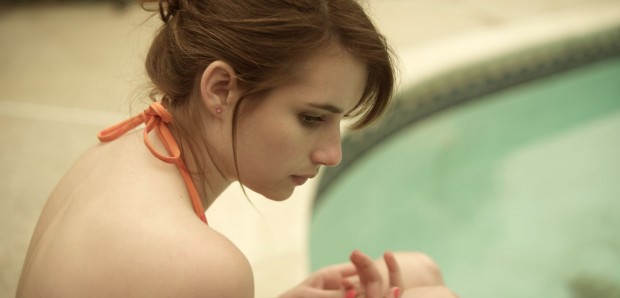
While some seemed to brush this off as one of the countless projects James Franco is yet again involved with in any given year, Palo Alto actually proves to be one of his most-well-realized collaborations. Based on a series of short stories from the actor, its multiple, intersecting storylines explore suburban life as a teenager in California, captured in a genuine way few other films measured up to this year. A few nods are certainly taken from her the aunt of debut director Gia Coppola, but the film establishes her as an authentic, independent voice that we’re looking forward to seeing more from. – Jordan R.
The Strange Little Cat (Ramon Zürcher)
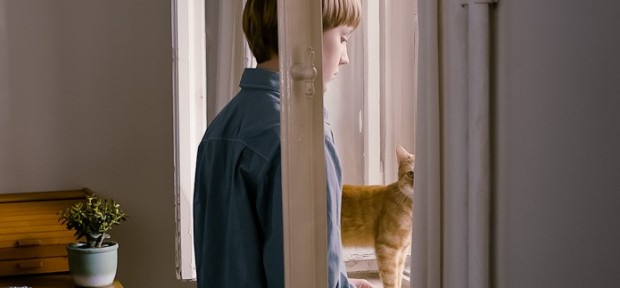
Running a brief 72 minutes, The Strange Little Cat will require multiple viewings, but ones which will pass by briskly and pleasurably so. Its aesthetic gambits are at once obvious and yet perplexingly complex, its tone a playful register mixed with sudden moments of melancholy, and its narrative at first shallow, but soon revealed to be densely layered. While some have criticized the Berlin School — the filmmaking movement that has bred terse, methodical directors like Barbara’s Christian Petzold, Everyone Else’s Maren Ade, and In the Shadows’ Thomas Arslan— Ramon Zürcher’s debut feature feels like a bold step towards something much warmer and amiable than any of these noted “contemporaries.” Given the subtlety of its narrative, questions of whether this congeals into something substantial might be up for further debate, but I’m willing to give this unquestionably unique work a very strong benefit of the doubt when the rigor of its filmmaking leads toward so many unexpected pleasures. – Peter L.
Zero Motivation (Talya Lavie)
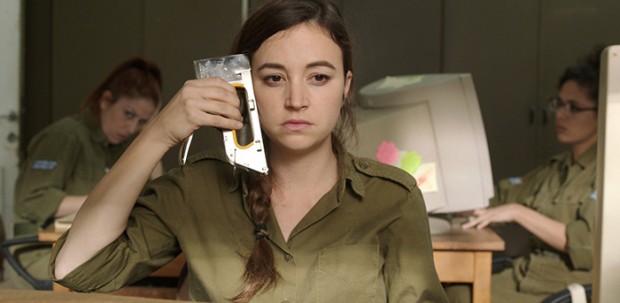
Delicately shifting from laugh-out-loud comedy to complicated issues such as suicide and rape, this debut from Israeli director Talya Lavie is one of the year’s most accomplished. While the backdrop of the military adds an integral dramatic layer, Zero Motivation could easily double as an office comedy, following a group of female IDF soldiers who find inventive and occasionally destructive ways to help their mandatory situation pass. With her debut, Lavie steps out as an assured and original voice, perfectly balancing deadpan humor with heartfelt emotion. – Jordan R.
What were your favorite directorial debuts this year?

